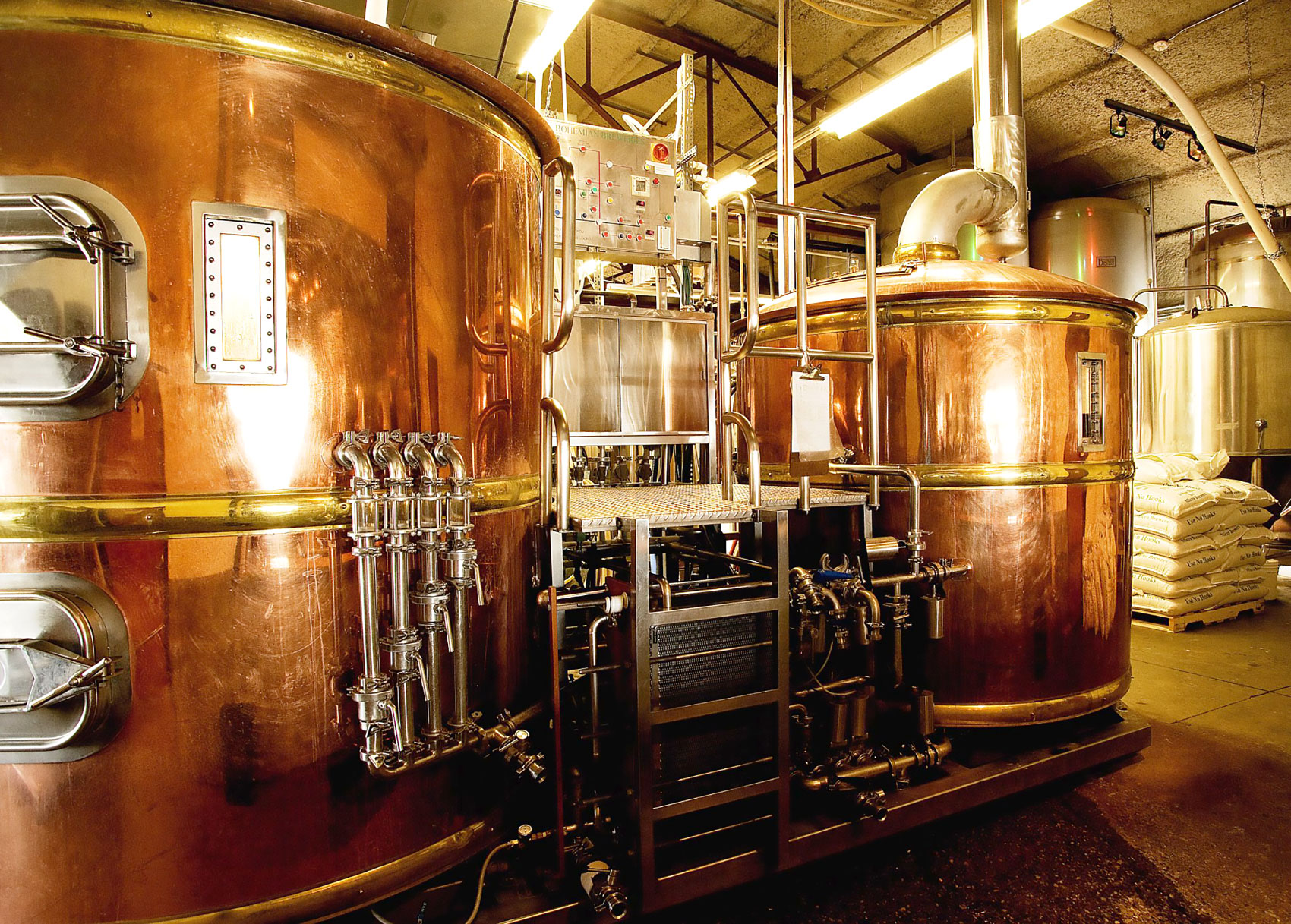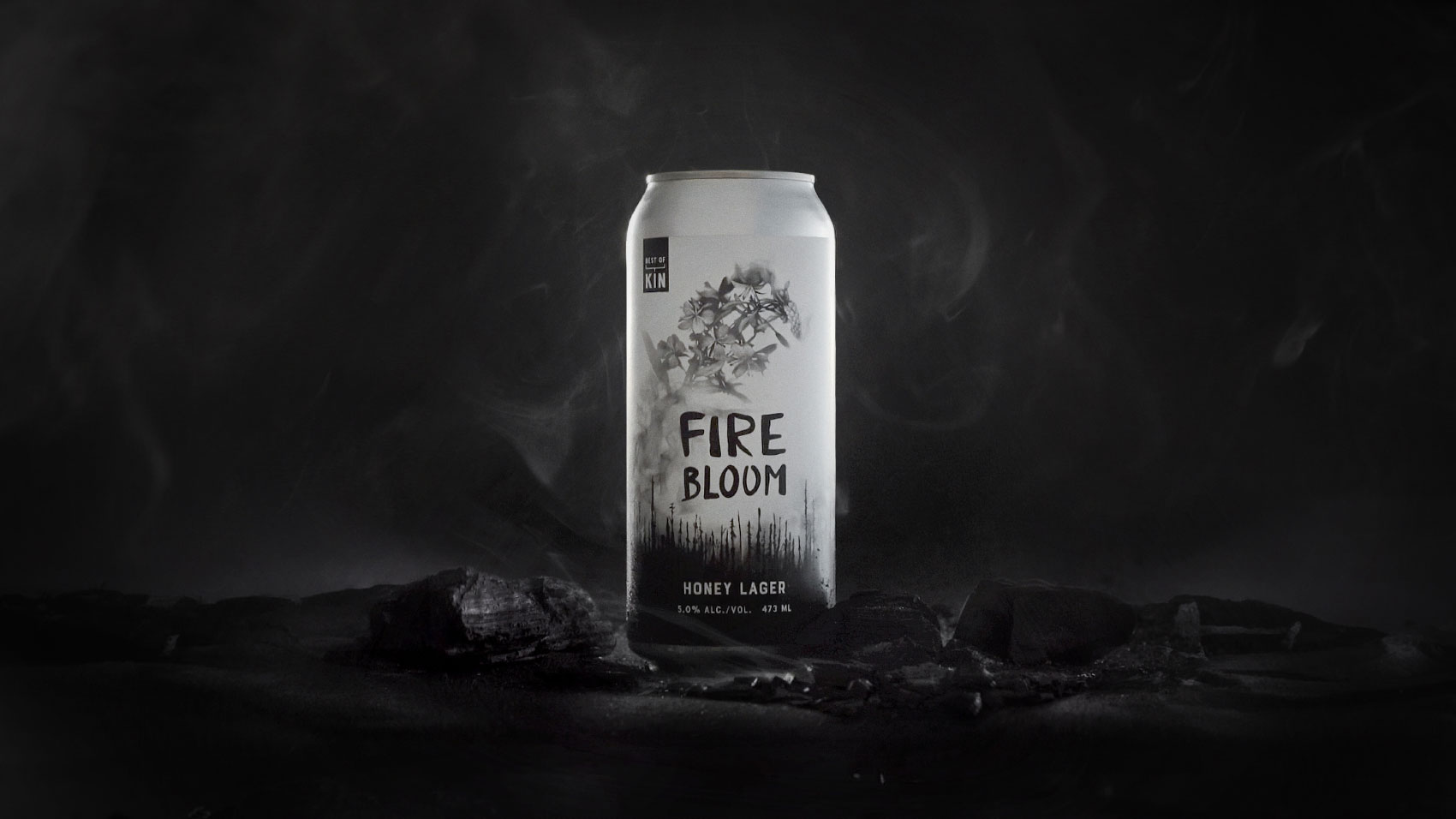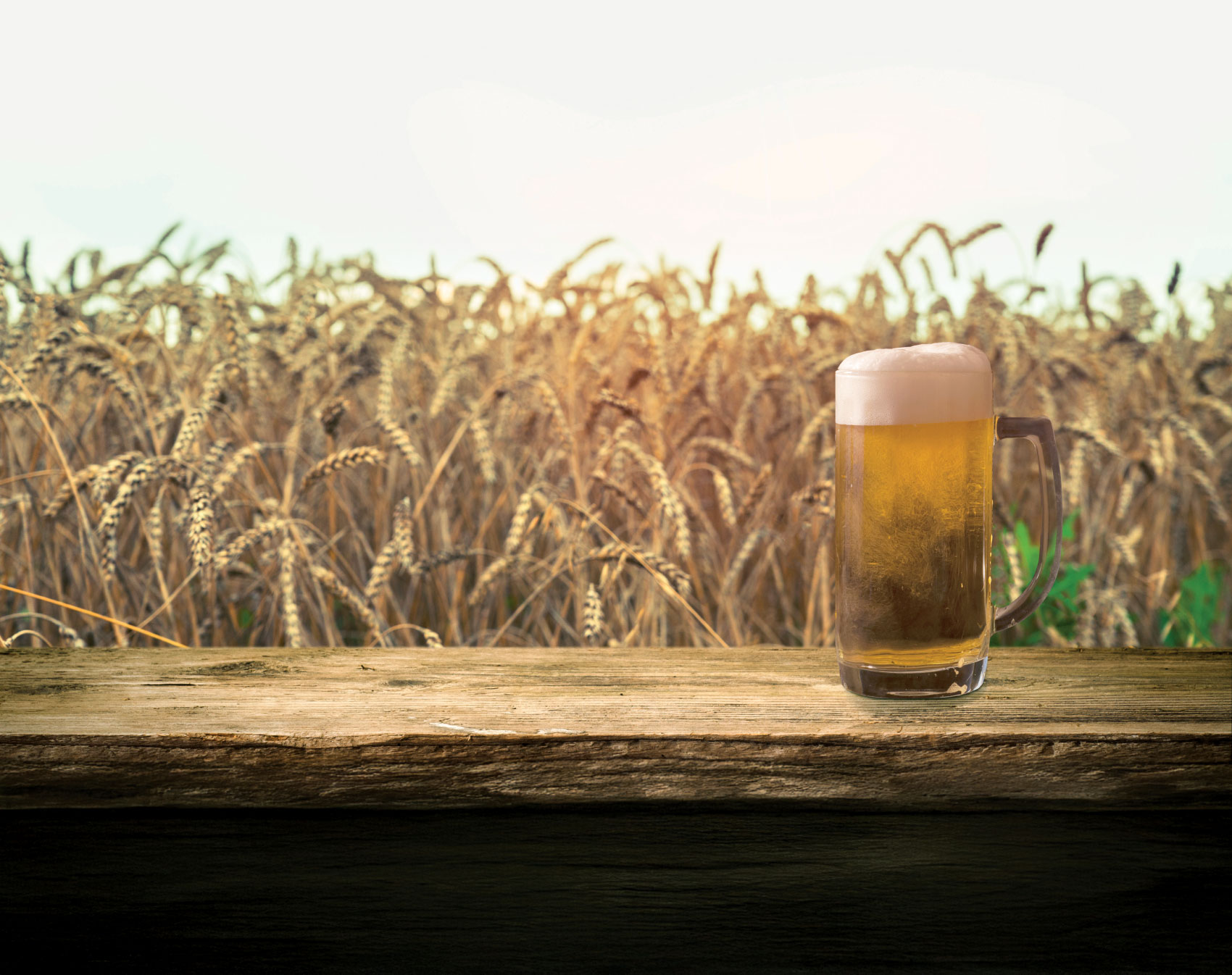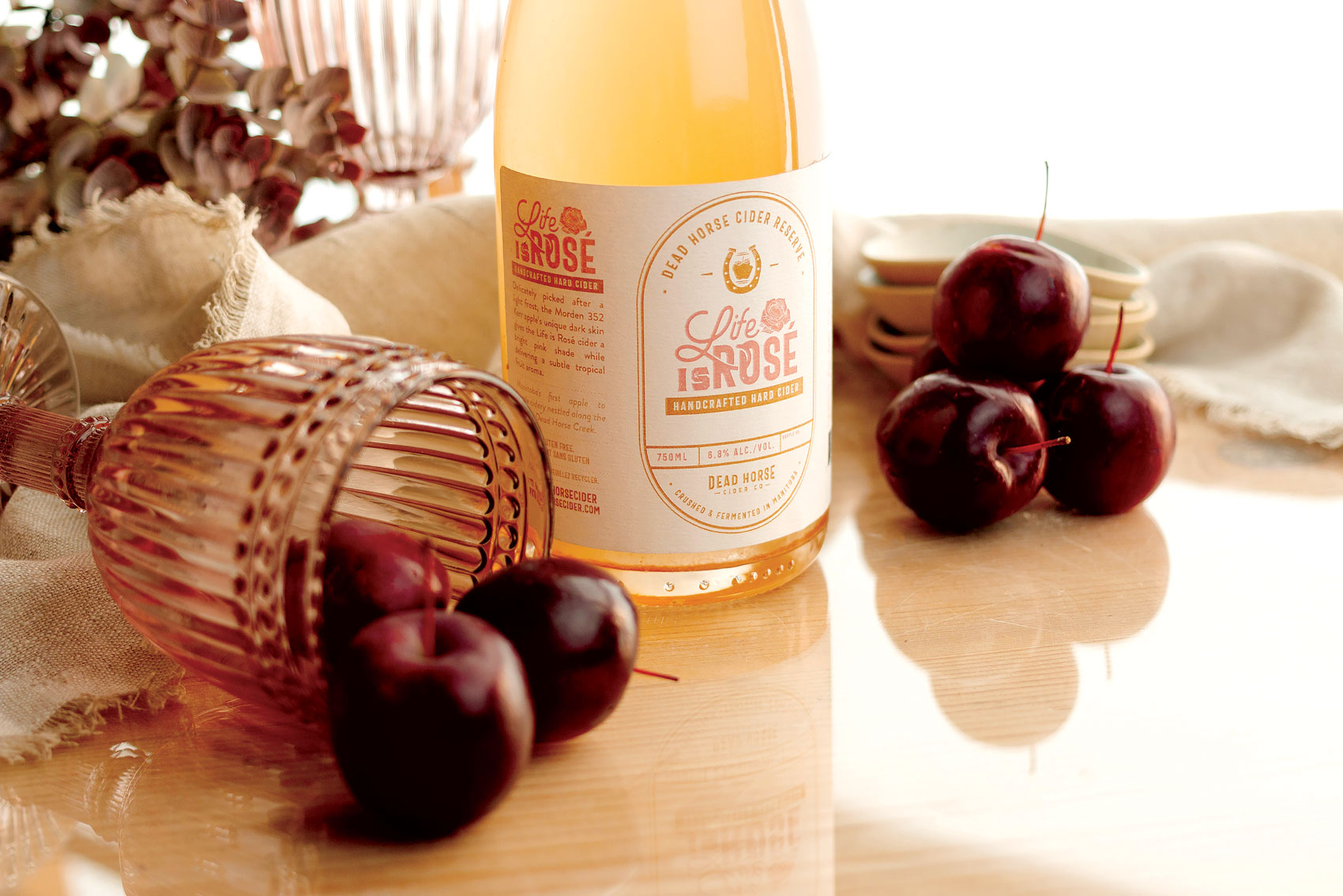Calgary’s Wild Rose Brewery began in the basement. Literally. Founded in 1996 by beer-loving friends Mike Tymchuk and Alan Yule in Tymchuk’s basement, Wild Rose has travelled a long road to success. After being acquired in 2019 by Sleeman Breweries, Wild Rose continues to thrive on the Alberta craft beer scene.
Although most of the brewery’s production now occurs on a 60-hectolitre DME brewhouse, christened in Calgary’s Foothills Industrial Park in 2016, the face of the brand is the brewery’s taproom in the historic Currie Barracks area, which Wild Rose has called home since 2005. That taproom also houses a 10-hectolitre Bohemian brewhouse, which makes some keg-only products for distribution and serves as Wild Rose’s innovation centre with weekly brewing and recipe experiments occurring on a one-hectolitre Blichmann Engineering brewhouse.
This taproom and innovation centre sits in a simple, green Quonset hut on land owned by Canada Lands Company, a federal Crown corporation. The lands are part of a former Canadian Forces base, and plans to redevelop the area have been off and on for the entirety of Wild Rose’s life there, conjuring almost annual uncertainty to their lease. However, this uncertainty has brought a scrappiness to the brewery, helping it not only survive, but thrive through the ups and downs over the years.
A part of the community
The Wild Rose Taproom can accomodate 110 people inside, featuring décor made from upcycled brewing equipment and kegs, a 110-person patio, with unobstructed sunshine since there are no nearby buildings, and a private event space for another 110 people.
“This is just about the most ‘Alberta’ place you can find,” said Adam Ward, general manager of the taproom. “We celebrate being located on the old army barracks. And we have no TVs, non-intrusive music and community tables to promote people talking to each other.
Brian Smith, Wild Rose’s director of operations, reports that 60 per cent of the brewery waste is recycled.
“The entertainment is the room. It’s telling that we are kind of in the middle of nowhere. Many businesses might find that a negative, but for us, it means people coming here put effort into [being here] and want to be here. So, our taproom has an energy nobody can explain or replicate.”
Happy customers and a unique energy translate into staff happiness. “We have employees who have been with us for over 20 years,” said Ward. “And even if they leave, we have lots of former staff continue to be some of our best customers.”
Being a long-time part of the Calgary community means the staff have even had the opportunity to watch families grow at the taproom. “We have couples who came here when they were dating, got married in our event space, come each year for their anniversary and now bring their kids because our taproom is child friendly,” said Sarah Basha, the taproom events manager.
Despite a skeptical public, some of who feared the acquisition by Sleeman Breweries would change the brewery, Wild Rose has doubled down on its efforts to remain local. Ingredients for the brewery and the kitchen are sourced as locally as possible. In fact, Wild Rose staff plant community gardens every year, the bounty from which often makes its way into the taproom kitchen. Even at the production brewery (which continues to make only local Wild Rose brands), all base barley and wheat are sourced from Alberta.
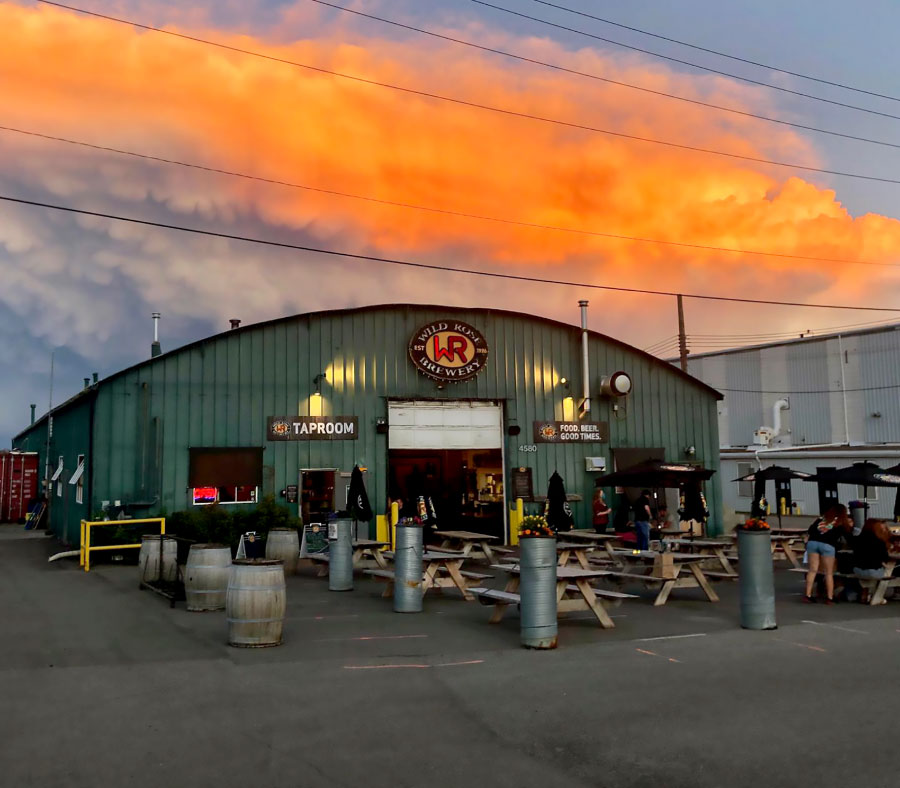
Every month, proceeds from the sale of the taproom beer are donated to a local charity. Dubbed the “Patron’s Pint,” the charity is always a local one, nominated (as the name of the program implies) by a taproom patron. Over the years, that has amounted to tens of thousands of dollars being contributed to local organizations as diverse as military museums and children’s sports leagues.
Basha is particularly proud of the brewery’s support of New Heights School & Learning Services. The local organization is not just a school for individuals on the autism spectrum, but it works to help its students integrate into the community. In addition to financial support, the Wild Rose Taproom uses its private event room to host meals as part of New Heights’ “Transition to Adulthood Program” so the students can learn to order food and interact with wait staff in a real, but controlled restaurant setting.
A part of the environment
For Wild Rose, being a part of the local community also means being a part of the global environment. To that end, they have invested in many sustainability initiatives, championed by a company-supported Green Team.
In addition to sending spent brewing grains to farms to be used as livestock feed – as is common with many breweries – Wild Rose has replaced all lighting in its production brewery with energy-efficient LED lighting. The brewery is installing an effluent tank to better deal with wastewater and is instituting procedures to side stream much of the brewery waste (malt, hops, yeast, fruit) and have it collected by the same organization that collects the brewery’s spent grain to supplement animal feed. Brian Smith, Wild Rose’s director of operations, reports that 60 per cent of the brewery waste is recycled and that they are continuously striving to increase that percentage.
“We have couples who came here when they were dating, got married in our event space, come each year for their anniversary and now bring their kids because our taproom is child friendly.”
Sarah Basha, Wild Rose Taproom
The brewery also tracks utility usage on a per-hectolitre basis with the goal of constant improvement. For 2024, Wild Rose has plans to install additional submetering to get more granular information on how much energy is being used by specific equipment and processes. The brewery will also begin venting compressors to the outside to use colder air, reducing utility costs. Lastly, Wild Rose is involved in a carbon dioxide usage project where all processes (packaging purge times, Bright Beer Tank head pressure, etc.) are being tweaked as a challenge to see how much CO2 usage can be reduced.
These initiatives are part of the brewery’s formal participation in the Science Based Targets initiative (SBTi) program, which has had the additional benefit of increased employee engagement.
Support for the environment is even part of Wild Rose’s team building efforts, with the Green Team organizing challenges throughout each year’s Earth Month. Such challenges include riding bicycles to work, zero waste and plant-based lunches, and clothing donation.
Data drives decisions
Participation in SBTi is evidence of Wild Rose’s dedication to improvement through data, not just lip service to social trends. In addition to annual diversity, equity and inclusion training for all staff, the brewery is undergoing an accessibility audit at both facilities. Another example of this is the brewery’s involvement with Beer Canada.
“We get great data and reporting from Beer Canada,” said Smith. “We can see consumer and sales trends, and these are very helpful as we make decisions.”
The future is Wild
In response to customer feedback and the Beer Canada data, Wild Rose plans to release 12-packs of 355 ml cans of their best-selling Wraspberry Ale this year. If successful, this will be followed by other beers in larger packs (currently, the brewery’s beers are available in four-packs of 473 ml cans).
Wild Rose’s plans to improve accessibility and inclusion, and to reduce environmental impact are incremental, but impactful. Smith downplays the brewery’s work, suggesting that things like submetering “are nothing sexy,” but it is these small, continuous improvements over a long period of time that have made Wild Rose the success that it is.

